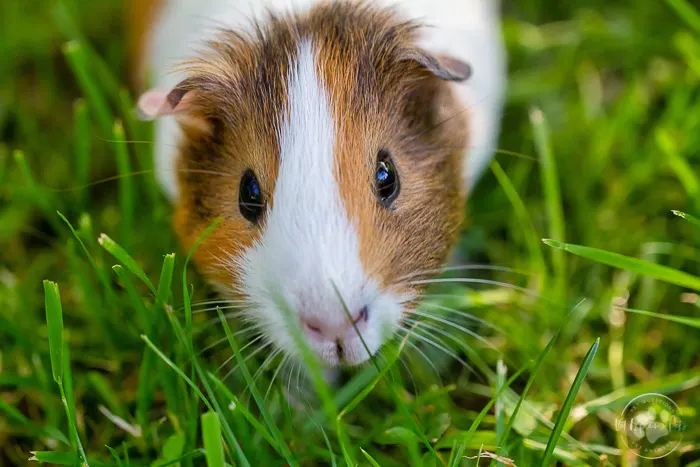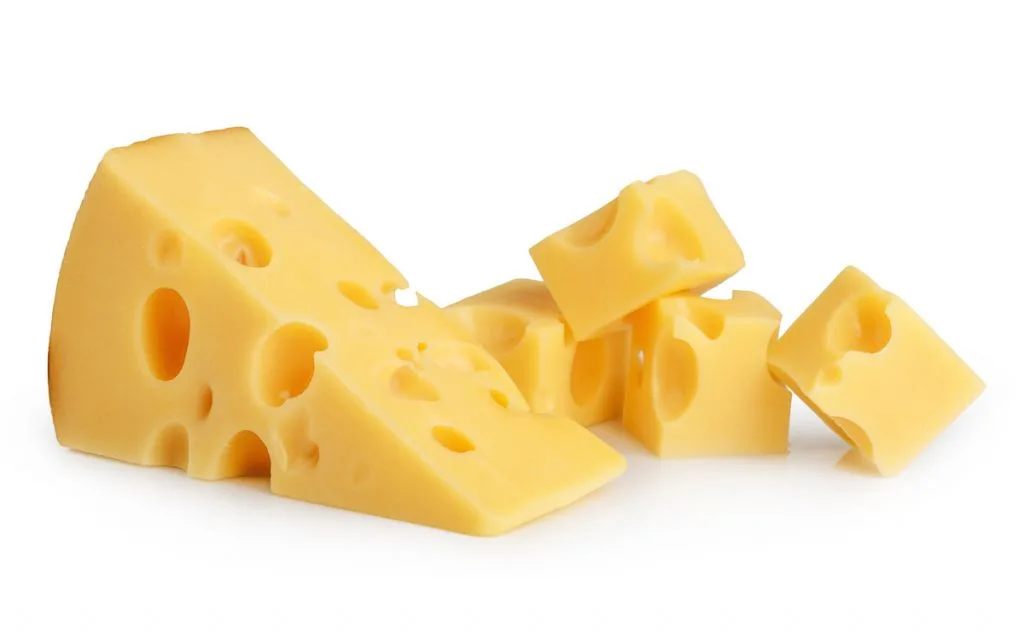Can Guinea pigs eat cheese safely? Guinea pigs are by far one of the most popular pocket pets. Who can resist feeding these cute little friends a treat like delicious cheese. Guinea pigs should not eat cheese, or any dairy products of any kind. Dr. Jess explains why you should not feed your pet cheese, and alternative foods that they can safely eat instead, below in this article:

A guinea pig is a pocket pet that is a part of the cavie family of animals, weighs up to 2.5 pounds as an adult, and with proper care, can fairly commonly be seen to live to 8 10 years of age.
What Do Guinea Pigs Typically Eat?
Guinea Pigs eat a variety of things to keep them healthy and happy.
- High-quality guinea pig food and Timothy hay should be the main staples of their diet.
- Up to about 10% of their diet can be made up of an assortment of vegetables and fruits, with fruits and vegetables over 12-24 hours old being discarded as soon as possible.
- They require 30 50 mg of vitamin C daily from their diet, either in their guinea pig food, a vitamin supplement, or from fruits and vegetables that are high in vitamin C. Ill get to this more here in a sec
- Guinea pigs do best with diets low in fats and sugars.
- Clean, fresh, filtered, chlorine-free water. Fresh water means that is is changed daily. Changed daily means that new water is placed into a CLEAN water dispenser!
Lets Talk Cheese Please!
Cheese is a popular dairy product that is produced from milk. This milk usually comes from cows, goats, or sheep.
There are over 1,000 different cheeses found throughout the world with different shapes, sizes, textures, hardnesses, flavors, and uses.
Milk is turned into what we know as cheese, typically by acidifying milk, causing a certain protein in the milk, named casein, to coagulate and curdle, and is formed into shapes that we are familiar with cheese having when we buy it at the store.
Many times, spices such as garlic, rosemary, or pepper, are added to the cheese for an extra added flavor.
Some cheeses need more aging time than others.
Some cheeses are better at melting and being ooey-gooey-stringy cheese, while others are harder to melt and tend to stay in their cheese-shaped form.
Cheese Nutrition:
Wikipedia states:
The nutritional value of cheese varies widely. Cottage cheese may consist of 4% fat and 11% protein while some whey cheeses are 15% fat and 11% protein, and triple-crème cheeses are 36% fat and 7% protein. In general, cheese is a rich source (20% or more of the Daily Value, DV) of calcium, protein, phosphorus, sodium and saturated fat.
Full of Important Vitamins and Minerals:
Cheeses contain calcium, phosphorus, riboflavin, zinc, as well as other minerals. Your pets body would not work properly or stay healthy without these essential nutrients.
Vitamins A, B12, D, and K are found in cheeses. These vitamins help with everything from great eyesight, to healthy bones, and even the foundation of blood clotting within the body.
Great Source of Fat and Protein:
Your guinea pig does need fat and protein in their diet to maintain a healthy body system. Cheese contains a decent amount of both of these nutrients.
Do Guinea Pigs Like Cheese?
Yes some definitely do!
Cheese can be like potato chips to guinea pigs! Delicious little snacks!
But cheese can be harmful to some pets. Is it toxic to guinea pigs too?

Can Guinea Pigs Eat Cheese?
Well after learning about some of the health benefits of cheese brings, wouldnt it be nice to know if you could safely feed it to your guinea pig?
Well, you should never feed your guinea pig any dairy products, including cheeses.
Thats right, even feeding a small amount of cheese as a treat to your guinea pig can have dire consequences because the guinea pigs digestive system is not set up to be able to digest dairy of any kind.
Is Cheese Harmful to Guinea Pigs?
Yes, cheese can be harmful in a few possible ways.
Cheese, and all other dairy products, cannot be digested in the guinea pigs digestive system.
Feeding them dairy products can lead to a multitude of problems including things like dehydration and electrolyte imbalances that could impart a trip to the veterinary clinic for your pocket pet vet to fix. There are other issues as well.
These three factors to keep in mind include:
Harmful Reason #1: Loose Stool/Diarrhea
Too much of any dairy product can produce hypermotile, or increased movement, of the pets digestive tract.
Some guinea pigs are more sensitive to additional foods or changes in their diets, so they are more likely to have loose stool and in some cases, full-blown diarrhea.
Other guinea pigs will not be impacted by any additional changes in their diets.
Harmful Reason #2: Allergic Reaction to Cheese
A guinea pig can develop an intolerance or an allergy to any food, so there is always the possibility that your pet is allergic to cheese.
If you suspect your guinea pig is allergic to cheese do NOT feed this food to your pet.
If your guinea pig is allergic to cheese and accidentally ingests it, go to your nearest animal emergency room immediately.
When this happens, the attack sets off a hypersensitivity reaction and can result in any of the following symptoms:
Common symptoms of adverse/allergic reaction to food:
- Nausea/vomiting
- Diarrhea
- Itching/Increased grooming
- Fever
- Lethargy
- etc.

ALTERNATIVE FRUITS FOR GUINEA PIGS:
Wrap up:
Feeding your guinea pig cheese of any kind is a bad idea.
If you have questions about your pets diet, contact your veterinarian before changing or adding items to their diet.
If you notice any adverse reactions after feeding your pet, let your vet know immediately for help.

